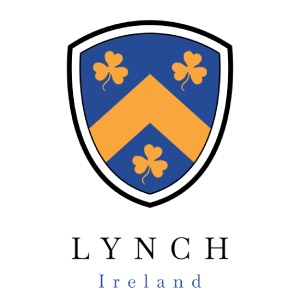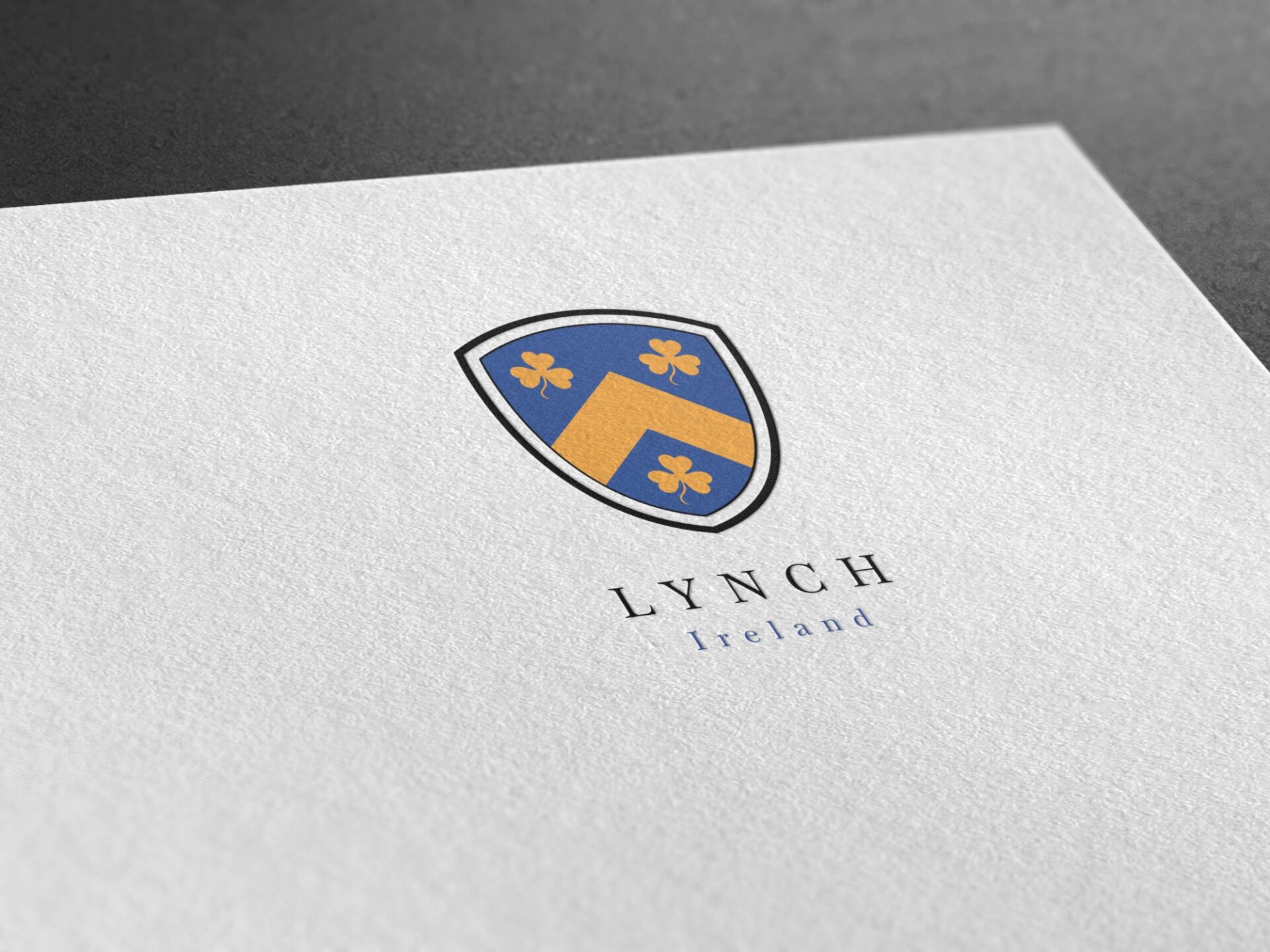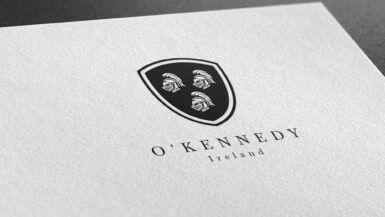The Lynch surname is of Irish origin, with deep roots in the country’s history. It’s among the oldest surnames in Ireland and is particularly associated with the province of Connacht, specifically in County Galway, where they held a family seat as a significant tribe of the region.
Etymology and Meaning
The surname Lynch has two possible derivations. One theory suggests that it originates from the Gaelic “O Loingsigh,” meaning “seafarer” or “exile.” Another theory posits that it comes from “de Lench,” a Norman name.
Earliest Known Usage
The Lynch name first appeared in historical records in the early 14th century, with Gilbert de Lyne, recorded as the mayor of Galway in 1274. The family was prominent in Galway’s history, with 84 mayors of the city from the Lynch family over several centuries.
Geographic Distribution
While the Lynch name is found throughout Ireland, it’s heavily concentrated in the western province of Connacht, particularly in Galway and Clare. The name has spread across the globe due to Irish diaspora, particularly to the United States, Australia, and the United Kingdom.
Original Geographic Location
The original location of the Lynch family in Ireland was in the province of Connacht. Here, they were one of the “Tribes of Galway,” fourteen merchant families who dominated the political, commercial, and social life of the city of Galway in the late Middle Ages.
Migration Patterns
Like many Irish families, the Lynchs experienced significant emigration, especially during the Great Famine of the 19th century. They moved to North America, Australia, and the UK, spreading the surname around the world.
Historical Context
Notable Historical Events
The Lynch family has been involved in many significant events throughout Irish history. They were a major part of the Galway Tribes and were central figures in the city’s administration and trade.
Involvement in Key Moments in History
One infamous event involves a member of the Lynch family, Mayor James Lynch FitzStephen, who is reputed to have hanged his own son for murder, coining the term “lynching.”
Notable Bearers of the Surname
Famous Individuals
Famous individuals bearing the Lynch name include David Lynch, the acclaimed American filmmaker known for movies like “Mulholland Drive” and the television series “Twin Peaks.”
Influential Figures
John Lynch, a 17th-century Irish historian and Archdeacon of Tuam, was an influential figure in documenting Irish history and culture. Also, the Irish-American entrepreneur and philanthropist Thomas Lynch Jr. was a signer of the United States Declaration of Independence.
Variations of the Surname
Spelling Variations
Spelling variations of the Lynch surname include Linch, Lynche, O’Lynch, and even Linsky, among others.
Regional Differences
In various parts of Ireland, the name may be found as “O Loinsigh” or “O Loingseach.” In the United States, it’s predominantly found as “Lynch.”
Current Statistics and Distribution
Frequency and Global Distribution
Today, the Lynch surname is most common in Ireland, followed by the United States, the UK, Australia, and Canada.
Changes Over Time
The distribution of the Lynch surname has expanded significantly over time due to historical migration patterns. While it remains most common in Ireland, its prevalence in other countries has grown due to emigration.
Family Coat of Arms

The Lynch family crest is a dignified and symbol-rich heraldic emblem, representing the family’s enduring values and heritage. The central feature of the crest is a blue shield, known as azure in heraldry, which traditionally symbolizes loyalty, truth, and strength. This color choice reflects the Lynch family’s commitment to these noble qualities, emphasizing a foundation of steadfastness and integrity.
Dominating the shield’s design is a gold chevron, positioned centrally between three gold shamrocks. In heraldry, the chevron represents protection and has often been granted in arms to those who have accomplished some notable enterprise, built churches, or fortresses, or have been faithful in their service. The color gold, or or in heraldry, enhances this symbolism, representing generosity, wisdom, and high ideals—traits deeply esteemed by the Lynch family.
The shamrocks, a distinct symbol of Irish heritage, add a significant cultural dimension to the crest. In addition to their national symbolism, shamrocks are often seen as emblems of perpetuity and vitality. The use of three gold shamrocks not only honors the family’s Irish roots but also signifies growth, balance, and prosperity within the family lineage.
Accompanying the shield is the family motto “Semper Fidelis,” which translates to “Always Faithful.” This motto serves as a verbal affirmation of the Lynch family’s enduring loyalty and steadfastness, values that resonate throughout their history and are vividly represented in the visual elements of their crest.
Together, these components of the Lynch family crest—the blue shield with its gold chevron and shamrocks, coupled with the poignant family motto—forge a compelling narrative of protection, loyalty, and cultural pride. This crest beautifully encapsulates the legacy of the Lynch family, portraying a proud and unyielding commitment to their principles and heritage.






Leave a reply